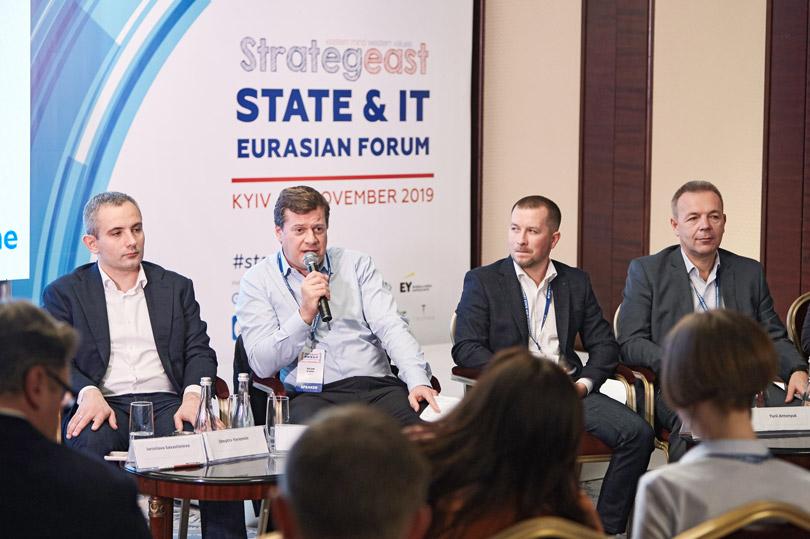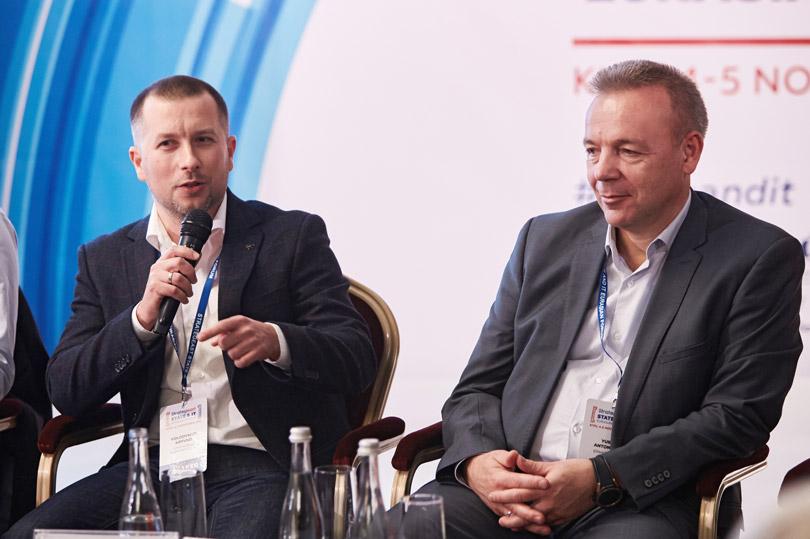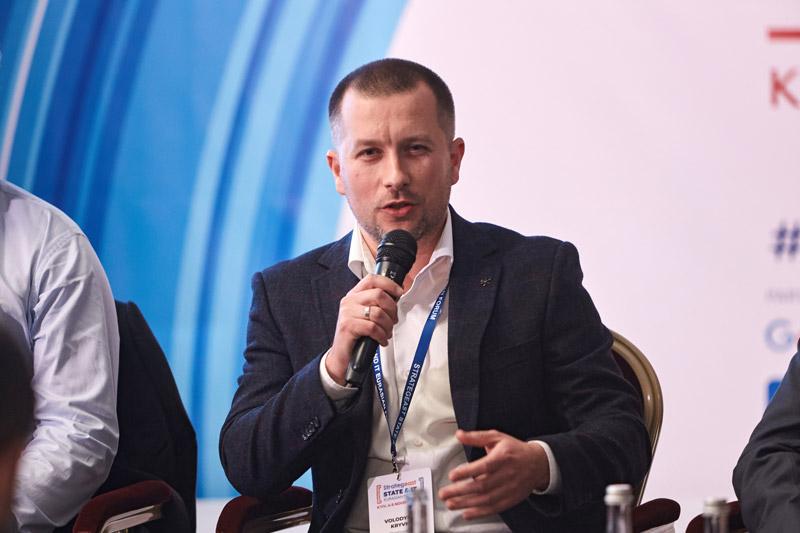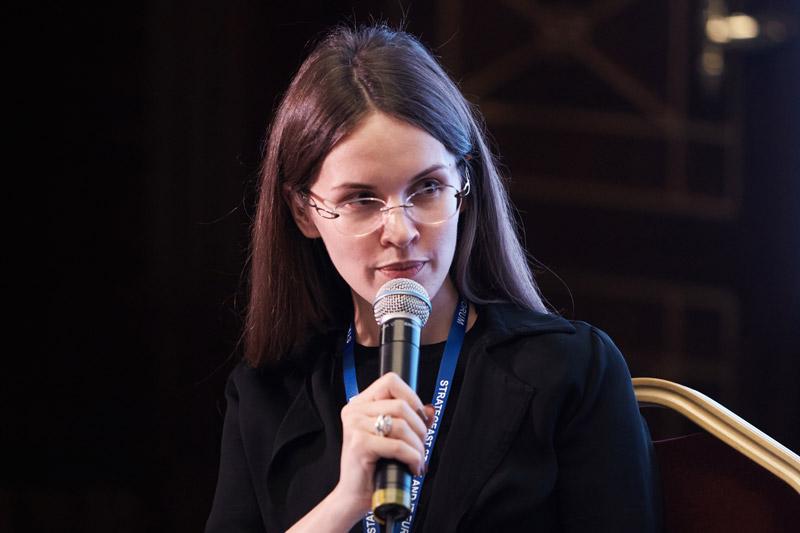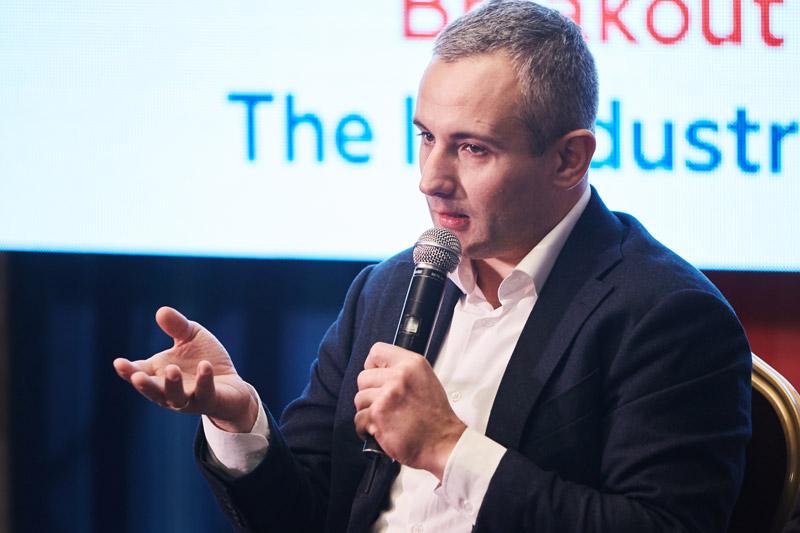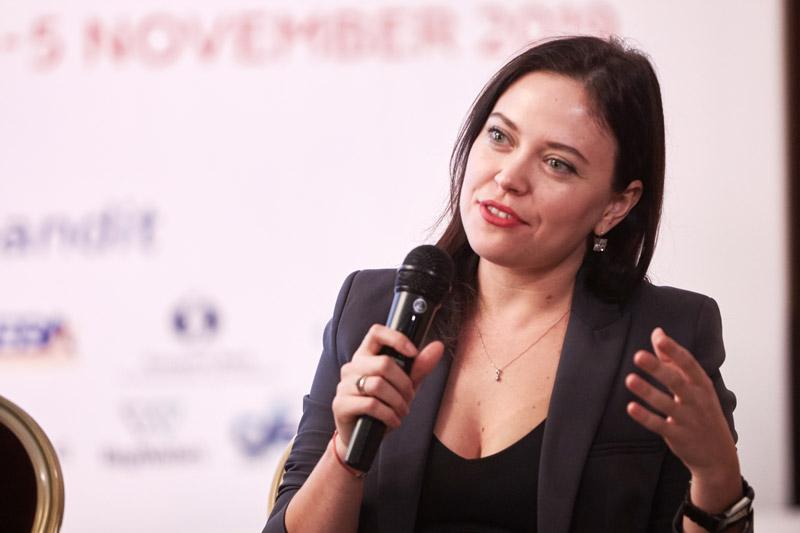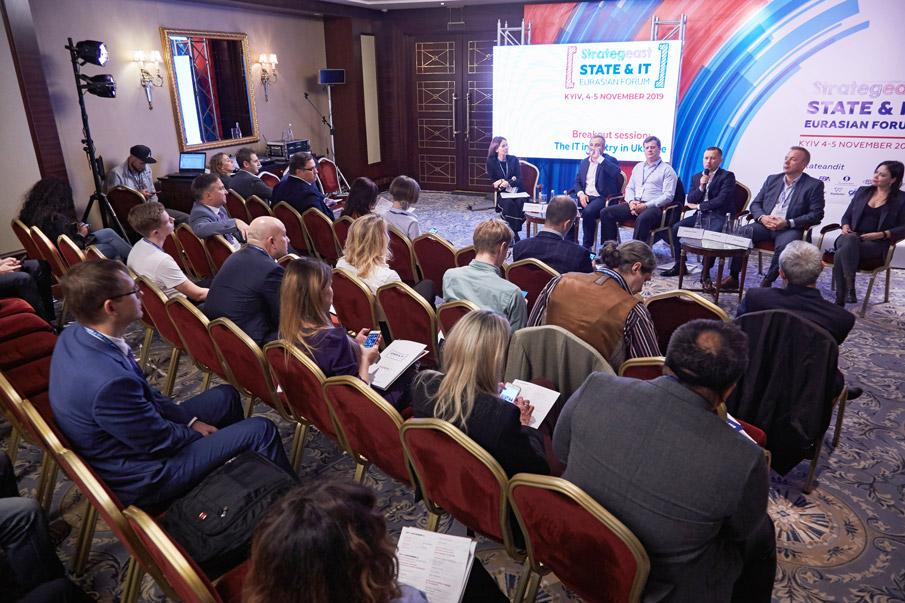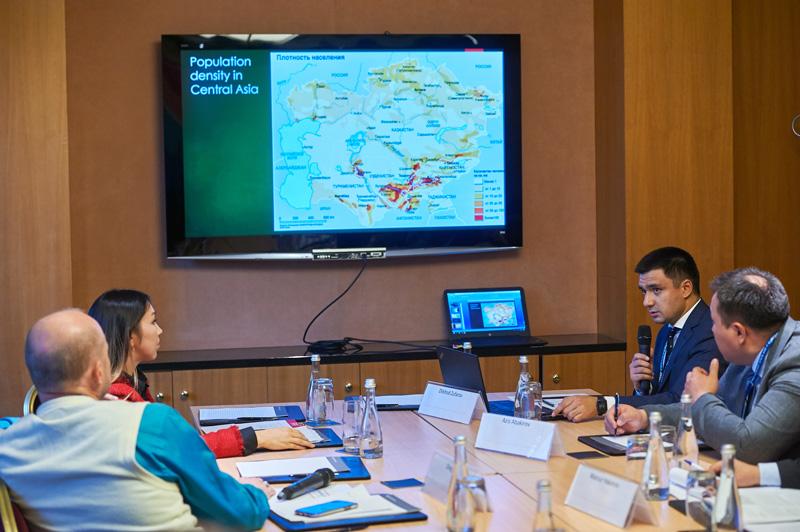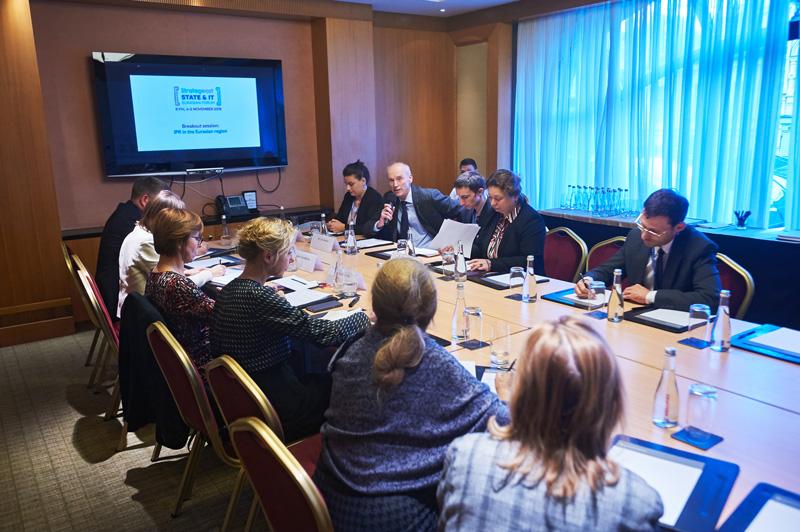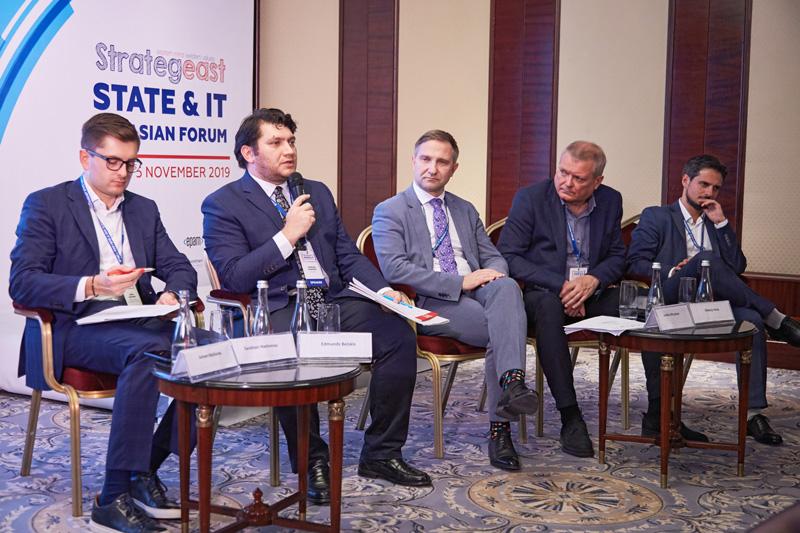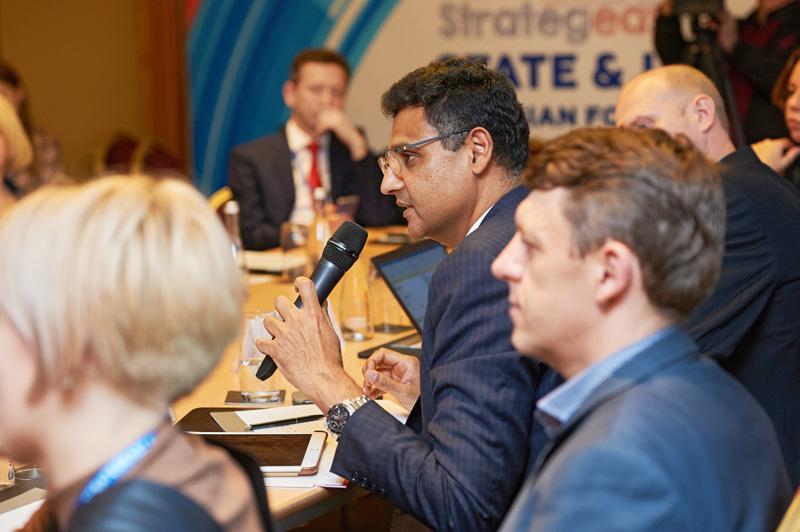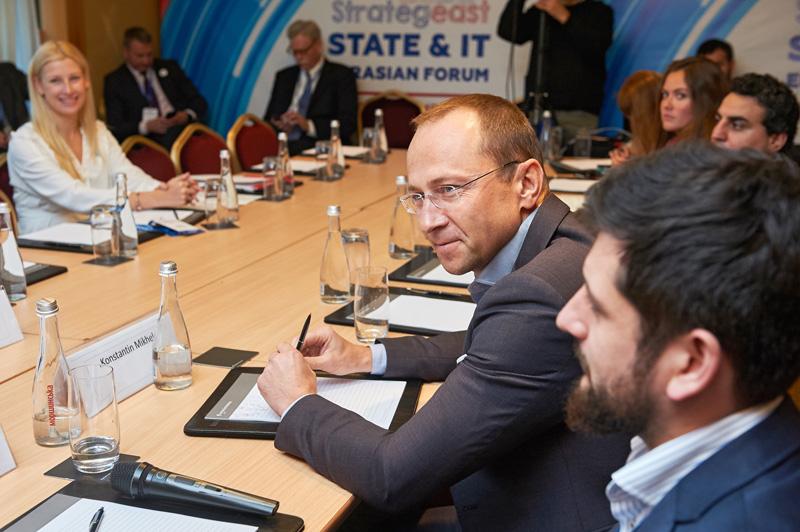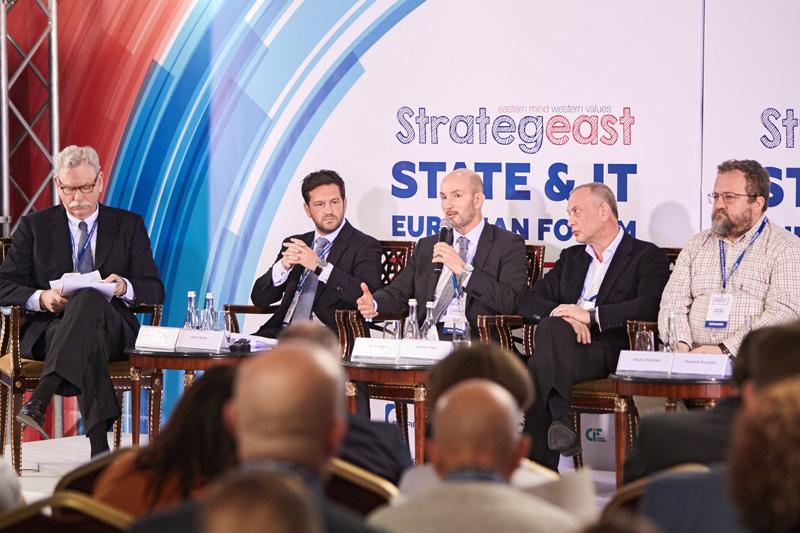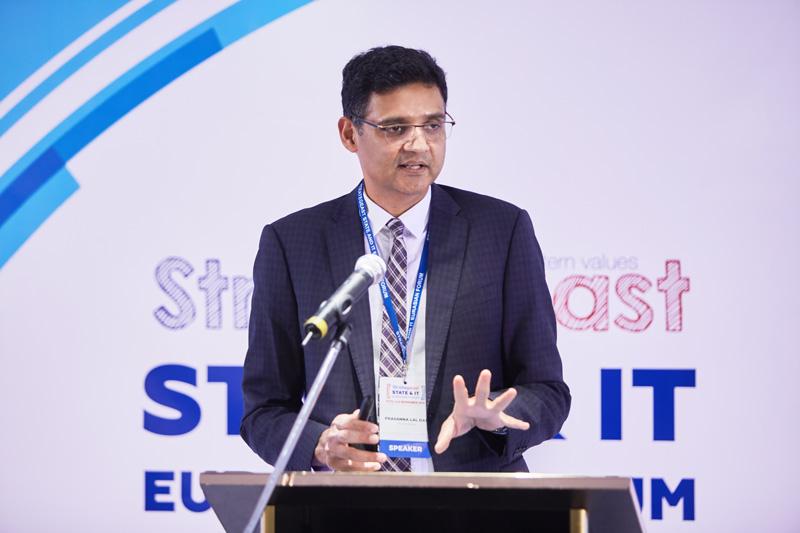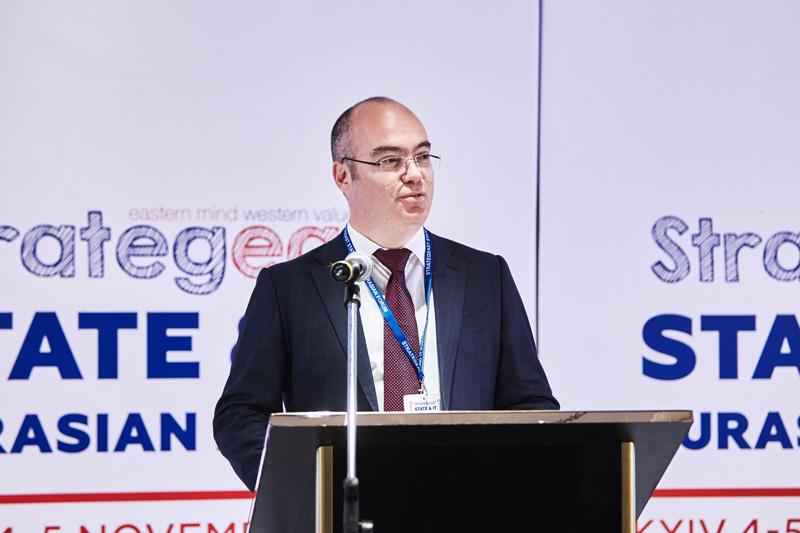![]() Presentation by Olga Afanasyeva, Ukrainian Venture Capital and Private Equity Association.
Presentation by Olga Afanasyeva, Ukrainian Venture Capital and Private Equity Association.
Download
The material is prepared based on speeches at the panel session “IT industry in Ukraine”. The speakers on the panel: Olga Afanasyeva, CEO of UVCA, Ukrainian Venture Capital and Private Equity Association; Yurii Antonyuk, Head of EPAM, Central and Eastern Europe; Julian Burns, Banker, Information & Communication Technologies, EBRD; Volodymyr Kryvko, Managing Partner, Chernovetskyi Investment Group; Iaroslava Savastieieva, European Business Association (moderator); Dmytro Yeriomin, Managing Partner, UNIT.City.
According to various estimates, the revenue of the Ukrainian IT industry amounts from USD 4 bln (if we take into account only the export component) up to USD 7-8 bln – taking into account domestic consumption. Although these figures do not look large in absolute numbers compared to more developed economies, industry growth trends inspire optimism in investors. Over the past 7 years, about USD 1 bln has been invested by venture funds in Ukrainian start-ups. Moreover, such investments over the past year amounted to USD 350 mln. The first companies appeared in Ukraine, whose capitalization exceeded USD 1 bln: Matlab and Grammarly. In the near future, representatives of venture funds expect publication of data on several more Ukrainian companies that can show a capitalization of more than USD 1 bln.
There is the development of the national start-up fund, some other forms of support to the initiative of tech Ukraine that we see now- and this is the group effort of the civil society, of the business and from the state and donors, and that is the very positive trend.
Despite its accelerated development, Ukraine’s IT industry is significantly losing even to neighbouring countries with similar geographical and demographic data: the IT industry’s revenue in Poland is about USD 19 bln, which in terms of per capita means that Ukraine lags behind Poland by this indicator approx. 3 times.
According to forecasts of Ukrainian IT industry leaders, the industry will continue to grow in the coming years, and in the next 3-4 years will double its revenue, thus bringing it to the amount of about USD 10 bln. If the forecast of the leaders in the IT industry is justified, then the share of the IT industry in Ukraine’s GDP will reach very high indicators – about 10% of the total GDP will be generated by the IT industry – such a high indicator is not typical even for developed countries. Besides, this figure takes into account only the direct contribution of the IT industry to GDP, excluding related jobs in industries serving the industry, such as construction, the supply of equipment for the industry, services serving workers in the industry, etc.
However, in order for these indicators to become a reality, according to industry leaders, the state must make its contribution by creating certain conditions.
The first condition is the growth of educational standards and learning opportunities. For the industry to grow by 25% per year, a corresponding increase in personnel is also needed. Today, 200 thousand people are employed in the industry, which means that every year another 50 thousand new specialists must join it. There is such a potential – according to the World Bank, Ukraine is in the top 10 in terms of personnel in mathematical education. This is a potential that still needs to be realized, not to be lost along the way. In this, the role of the state is to increase the cost of education for IT. The university needs about USD 3,000 to train one specialist for the industry. Although in absolute terms it is a little money when it comes to the need to train tens of thousands of specialists a year, the total amount of necessary investments is tens or hundreds of millions of US dollars a year. This should be a joint investment of the state, industry companies, and international financial partners of Ukraine.
Today’s state education system of Ukraine most often produces specialists who are not ready to work in the industry, who are forced to provide additional education to IT companies before hiring them. In fact, all the large companies operating on the market create “internal universities” where they organize additional education at their own expense for students of state universities studying in specialized disciplines.
Panel participants expressed a proposal to systematize their training programs and implement in the educational processes of those universities that are strong in one direction or another. These are Kharkov universities, these are Kyiv universities, Dnepropetrovsk, Lviv, where there are quite good mathematical schools and, accordingly, technical schools. The state should also increase the number of places in universities in the specialties most in demand in the IT industry – mathematics and other basic sciences. There are not enough such specialists in the market, while the market is oversaturated with young specialists in law and economics.
The second measure that the state should take is the creation of an ecosystem to develop start-ups in the country and attract foreign incubators to the country. If the government can push the start, tech startup ecosystem, but they can take into account the examples of Estonia, Israel, even Belarus, it seems that a lot could done and we have some guidelines. This is important to do even if first these companies are registered not in Ukraine, but in other jurisdictions. However, it is important that people who work in the company stay to live and work in Ukraine. To do this, the state must provide them with appropriate conditions.
Another measure with which the state can contribute to the development of the IT industry, industry leaders consider facilitating the possibility of attracting foreign specialists to work in the industry.
Currently, in Ukraine there is a constant outflow of labor abroad, including from the IT industry. According to industry leaders, good specialists left and will leave Ukraine in the future. This is an inevitable trend, it is impossible and does not need to try to stop. If for no other reason than presence of a similar trend in developed countries. Good specialists are also leaving the USA or Germany. However, others come in their place. In Ukraine there is practically no reverse process – there is practically no inflow of specialists from abroad. To create such a reverse process is the duty of the state. The whole Ukrainian environment – both the state and society – must become more tolerant in order for a foreigner who wants to come to work in Ukraine to feel comfortable here. In addition, the state should provide a simple document processing system for such foreign specialists who want to work in the Ukrainian IT industry. It is impossible to stop the outflow of specialists, but there is an opportunity to compensate for it by the inflow of specialists from abroad.

